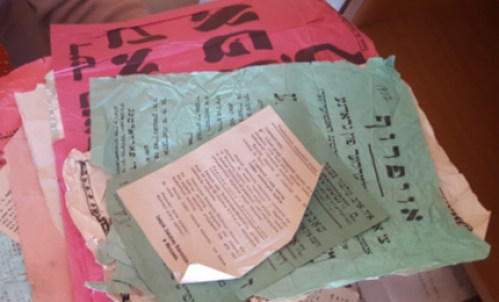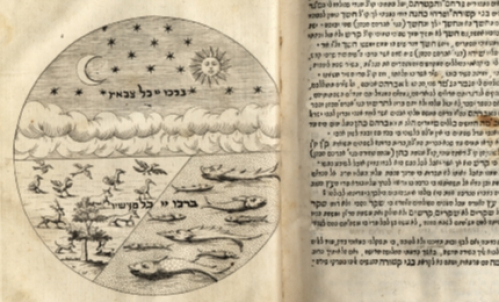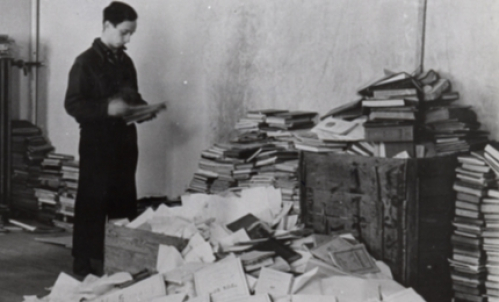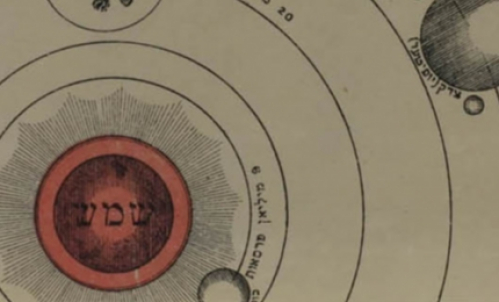Interview 3: G.J.
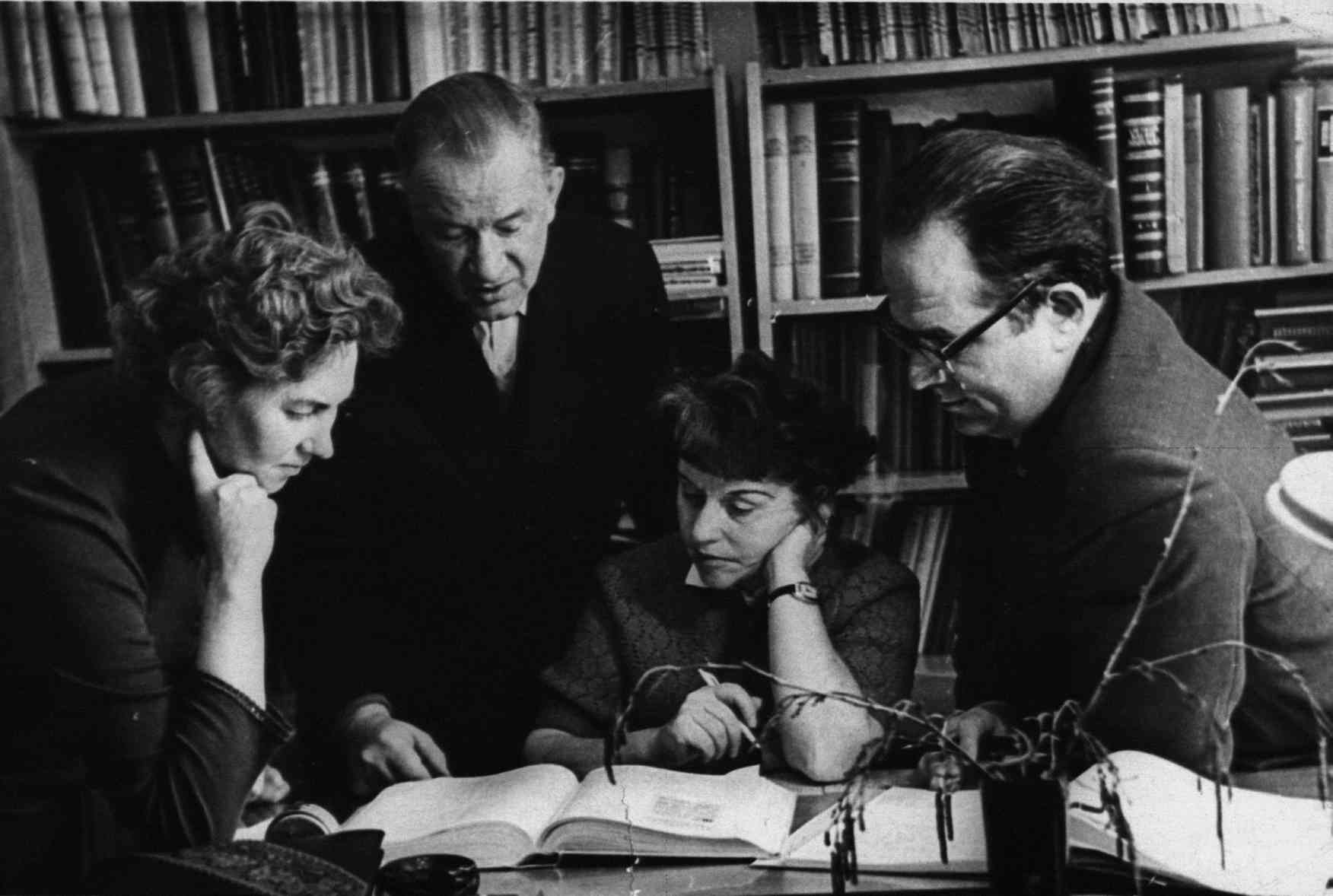
I came to work at the Book Palace [Book Chamber of the Lithuanian Soviet Socialist Republic ] in 1949. Ulpis was ill then and away from work. I saw him only several days later, and was introduced to him much later still. It was very nice that the institution had a kind, warm atmosphere, everyone working together as friends, and this entire ambience was due to Director Ulpis, who was passionate about it and passed it on to us. He was quite demanding, and we often had to pay for our mistakes, but we received a very good schooling in bibliographic work and in love for books.
Director Ulpis was unbelievably dedicated to his work. He managed to work evenings and nights, and in addition, at the time, books from all over Lithuania were being brought here, to be given shelter in the Book Palace instead of being destroyed. The books were brought on a small truck: two people would drive around Lithuania at night, find out where there were old books gathering dust in manors, attics, and churches, and bring them here.
When the books would arrive, all of the employees would come out into this yard and carry the books from the little truck into the church. Later, we also worked with the books. Director Ulpis made a list of people competent to look through the books. Most importantly, books that had to do with Lithuania, had been published in Lithuania, or written by Lithuanian authors had to be picked out. Out of all the books brought in, we set those aside immediately and they were placed in storage. The remaining books, those whose connection to Lithuania was unclear, would be leafed through by the employees in search of even the tiniest mention of Lithuania.
The Director himself was the one who dedicated the most time to those books. He would not leave the piles alone and found a number of very rare publications, if not Lithuanian, then in foreign languages, all rare — including Jewish ones. There were many Jewish books.
As for the Jewish books, there were next to no people who knew those Jewish languages, so… There was no one among the employees who knew any Jewish languages, so it was more difficult to look over and sort those books. Then Director Ulpis approached the Jewish community, asking for volunteers to help arrange the books. Initially, quite a large group of people formed who would regularly come to the Book Palace and look over the books and even describe them. That is more or less what I know of the books in the Jewish language.
As for that manuscript archive brought from the former Jewish institute, I barely knew anything. All I knew was that there had been talk of going to collect manuscripts and books, and that everything had been very messy and dirty, and the people who worked there had packed all of those crumpled manuscripts into boxes and brought them to the Book Palace. Whatever happened to the manuscripts next I didn’t know. Another thing I could say is that I visited the Cathedral at the time when it was closed and confiscated from the church, so to speak. Ulpis sent me and another colleague to the Cathedral and said we had to look around, check every corner and every attic, and every tiniest piece of print we found we were to collect and bring to the Book Palace. It was very impressive and quite interesting, because at that time some religious attributes still remained in the cathedral, and we saw them up close. We did find some print materials, but quite few, because other libraries had already taken everything.
Speaking of Director Ulpis personally, I would like to point out that in Soviet times our team included many people who survived and were protected by spending their time here, instead of being sent away or suffering even heavier consequences. Nearly the entire staff consisted of people who were somehow not desired by the Soviet regime: daughters of deported parents, a wife of a partisan, and people who had been in the Lithuanian army. Ulpis took them all under his wing and protected them when anyone tried bothering them.
It is also remarkable how democratic Ulpis was. He never took more than his staff members. I remember how in the difficult post-war times our entire team would go mushroom-picking. One time we found an unusual amount of mushrooms. Ulpis had also come. He picked so many mushrooms that he even had to take off his jacket to carry them. When we came back to Vilnius, Ulpis did not have the car take him home directly. He got off at a corner near his house and refused to be taken further, so as not to be different from everyone else.
